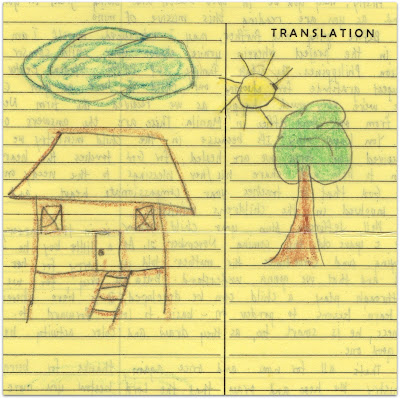Tonight I remembered a story that my physician referred me to a couple years ago when I happened to mention to him that I was requesting my marriage be arranged: Isaac & Rebekah. What he referred me to was actually a five-part sermon to college students about marriage and the selection of their mates from Ravi Zacharias. (Here's the link to a page with the series.) The story is found in Genesis 24, and it actually really does reflect what I desire.
The sum of the story is Abraham sent his most trusted servant to go find a wife for Isaac, his beloved, promised son. Abraham made his servant swear an oath, but also counted for himself God's promises to be true and assured his servant that "He will send His angel before you" (Genesis 24:7). So Abraham's servant went out - ever so deliberately - and he prayed specifically regarding the responsibility bestowed upon him:
Then even Rebekah's father and brother recognized that it was the LORD's doing (Genesis 24:50)! And even when there was ample opportunity for the servant's fear (Genesis 24:5) to come to pass (Genesis 24:54-58), the LORD still didn't let that happen, either! Oh, He is faithful to the uttermost!
Seriously, this is what I want. The list of scouts I have made (the number has shifted from 12 to 19 to, now, 14) are men who/whom:
The sum of the story is Abraham sent his most trusted servant to go find a wife for Isaac, his beloved, promised son. Abraham made his servant swear an oath, but also counted for himself God's promises to be true and assured his servant that "He will send His angel before you" (Genesis 24:7). So Abraham's servant went out - ever so deliberately - and he prayed specifically regarding the responsibility bestowed upon him:
O LORD, God of my master Abraham, please grant me success today and show steadfast love to my master Abraham. Behold, I am standing by the spring of water, and the daughters of the men of the city are coming out to draw water. Let the young woman to whom I shall say, "Please let down your jar that I may drink," and who shall say, "Drink, and I will water your camels" - let her be the one whom You have appointed for Your servant Isaac. By this I shall know that You have shown steadfast love to my master. (Genesis 24:12-14)Keep reading:
Before he had finished speaking, behold, Rebekah...came out with her water jar on her shoulder. The young woman was very attractive in appearance, a maiden whom no man had known. She went down to the spring and filled her jar and came up. Then the servant ran to meet her and said, "Please give me a little water to drink from your jar." She said, "Drink, my lord." And she quickly let down her jar upon her hand and gave him a drink. When she had finished giving him a drink, she said, "I will draw water for your camels also, until they have finished drinking." So she quickly emptied her jar into the trough and ran again to the well to draw water, and she drew for all his camels. The man gazed at her in silence to learn whether the LORD had prospered his journey or not. (Genesis 24:15-21, emphasis mine)I love how the servant responded: "The man bowed his head and worshiped the LORD and said, 'Blessed be the LORD, the God of my master Abraham, Who has not forsaken His steadfast love and His faithfulness toward my master. As for me, the LORD has led me in the [right] way [faithfully]'...." (Genesis 24:48)
Then even Rebekah's father and brother recognized that it was the LORD's doing (Genesis 24:50)! And even when there was ample opportunity for the servant's fear (Genesis 24:5) to come to pass (Genesis 24:54-58), the LORD still didn't let that happen, either! Oh, He is faithful to the uttermost!
Seriously, this is what I want. The list of scouts I have made (the number has shifted from 12 to 19 to, now, 14) are men who/whom:
- know me and what I consider to be valuable in my warrior poet
- I have known for a number of years
- love God and possess some same attributes that I desire to be found in my warrior poet
- will make it a matter of prayer as they go seeking on my behalf
- will disciple my warrior poet for a period of time before completely approving him
- I trust with such a responsibility.
∞אני לדודי ודודי לי∞
